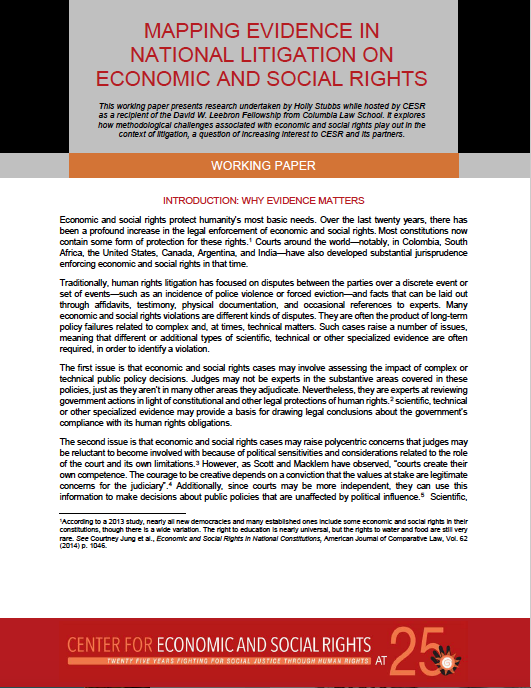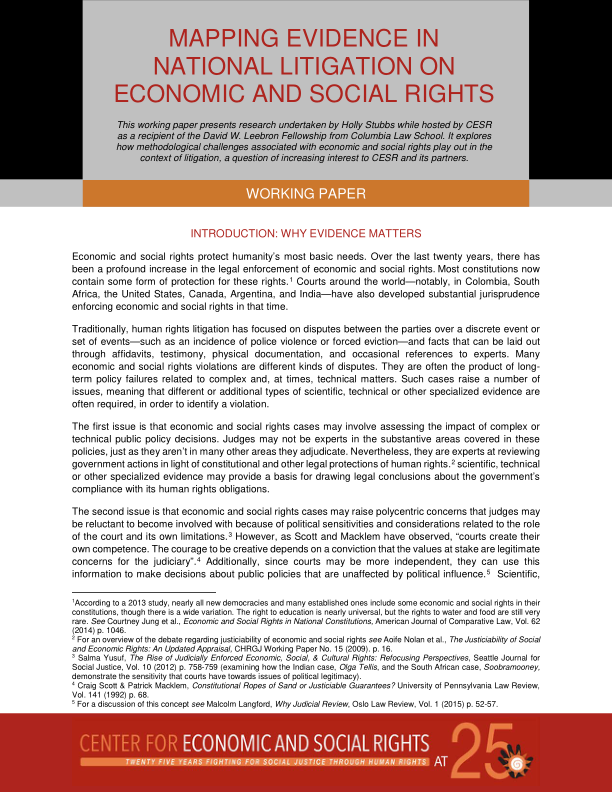Over the last twenty years, human rights advocates have increasingly used litigation to address structural problems related to economic and social rights. Traditionally, human rights litigation has focused on disputes between parties over a discrete event or set of events—such as a forced eviction or denial of a service on discriminatory grounds—and facts that can be laid out through affidavits, testimony, physical documentation, and occasional references to experts. Many economic and social rights violations are, however, different kinds of disputes. They tend to be the product of long-term dysfunctions related to complex and, at times, technical social and economic policies. Such cases raise issues that may require scientific, technical or other specialized evidence, in order to establish a violation.
This working paper presents overall findings of a research project undertaken by Holly Stubbs while hosted by CESR as a recipient of the David W. Leebron Fellowship from Columbia Law School. Reviewing 100 judgments in cases from different jurisdictions from around the world, it maps types of evidence used in economic and social rights litigation, as well as the legal conclusions that different types of evidence helped to substantiate. It finds that while courts tend to rely on more familiar types of evidence, such as testimony and physical documentation, scientific, technical or other specialized evidence are critically important for making out key elements of an economic and social rights claim. The critical question that this paper raises is what particular challenges arise in making use of scientific, technical or other specialized evidence successfully.
CESR has focused extensively on addressing the methodological challenges related to monitoring and demanding accountability for violations of economic and social rights. In the context of that work, we have observed a strong interest from litigators to explore how methodological challenges translate into evidentiary challenges. This paper will inform ongoing conversation on these challenges facilitated by CESR and we welcome feedback on it.

